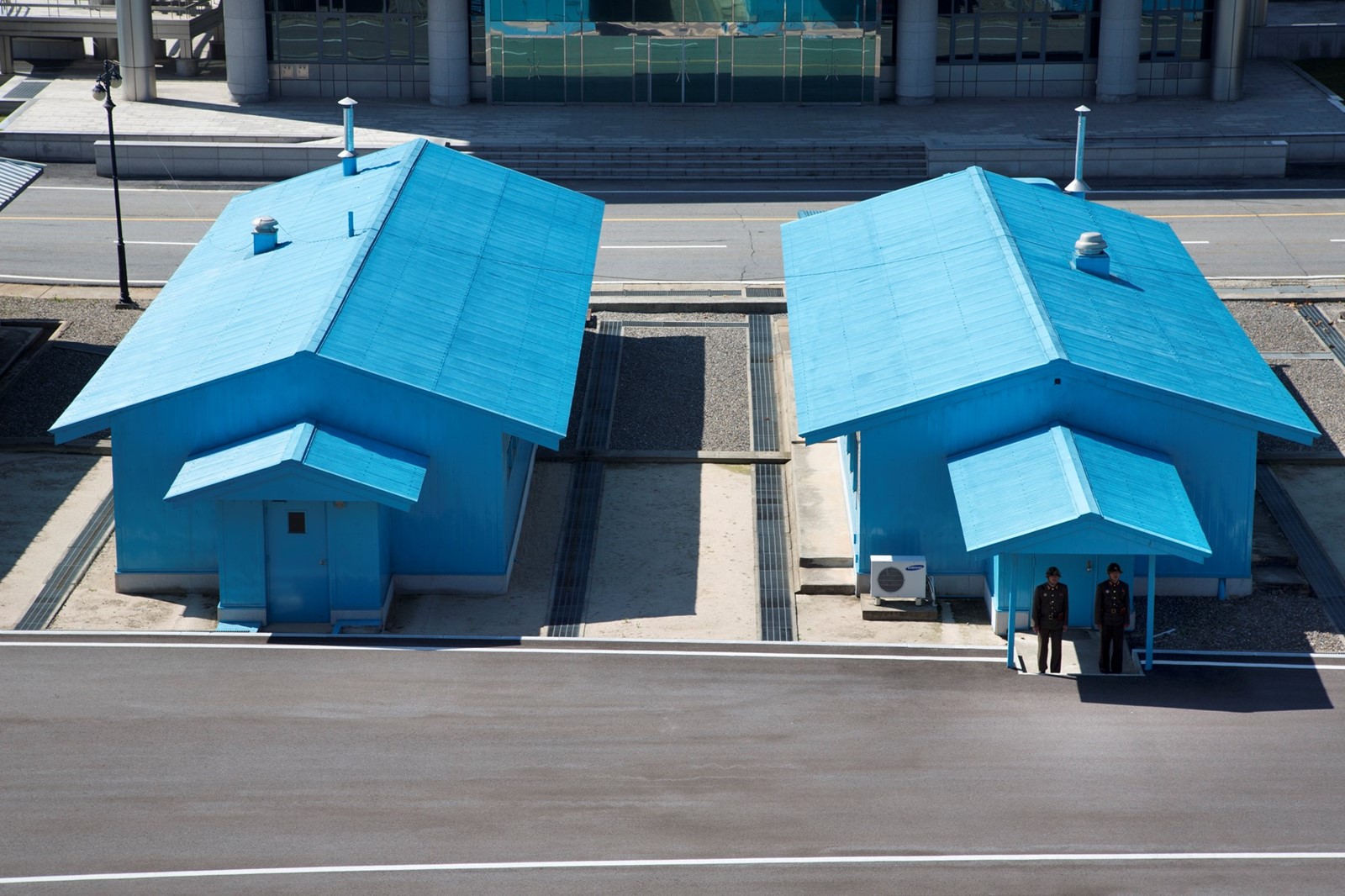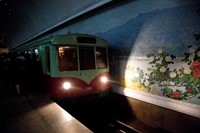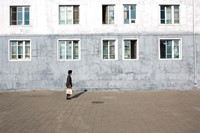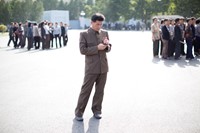Frederick Paxton is situated in a remote Black Sea port on the coast of Batumi, Georgia when we first speak. He tells me that he felt compelled to visit because “there are lots of strange and wonderful things to capture” – including a dedicated dolphin aquarium, which possesses (among myriad dolphins) “an intriguing, old-world aesthetic.”
This particular excursion is atypically mellow for Paxton, who has spent much of his career documenting grave political unrest and war in some of the most treacherous regions of Iraq, Lebanon, Ukraine and Syria. Indeed, the forcibly hostile North Korea is the subject of our phone interview, which Paxton visited several years earlier through “a guy I found in China, who organised these very small tourist tours into the country,” in order to realise an evocative film installation and photo series.
The installation, titled The Ambition of Conformity Never Breaks Individuality [shown above], premiered at Miami Art Basel in 2013, and presented a vivid triptych of deconstructed footage. The first and last videos were recorded at one of Pyongyang’s many public sporting celebrations. “It’s a bit like a show,” says Paxton, adding, “Like the opening of the Beijing Olympics – thousands of people performing as one.” While each disciplined routine is synchronised to regimented effect, on closer inspection, he began to notice slight discrepancies in movement, expression and pace. As he explains, “I started to shoot in slow motion, and my focus shifted from a large crowd to individuals. So, inevitably there are anomalies, because you can’t completely hide individuality, it’s inherent to every human being, and that’s a wonderful thing.” The resulting scenes are representative of this notion, confronting the collective communist values that are enforced throughout North Korea – which, in turn, created an unusual visual foil to the third and central film. “I was considering China's influence on Tibet, and came across these sort of purpose-built hotels for Chinese workers and visitors, which were decorated with these bright, colourful twinkling lights, alluding to the fact that these places were a fantastic place to be on a surface level, when once again, there’s something an awful lot darker there underneath.”
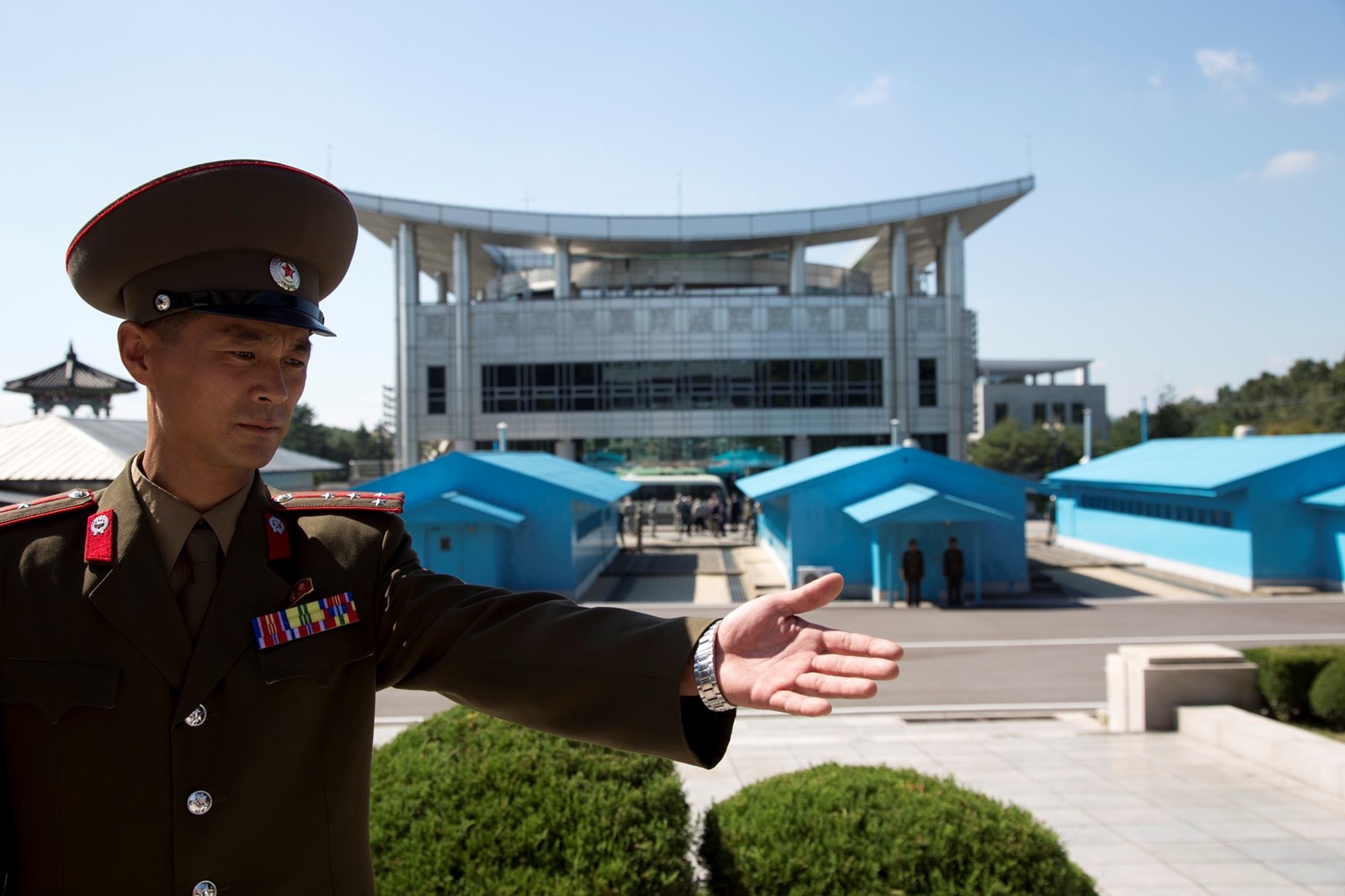
Though markedly different in tone, Paxton’s photoseries – which upholds a vibrant, cinematic quality – also highlights the absurdity of ‘normal’ affairs in the country. “There’s a photograph [see above] of a border guard which sums the series quite well,” he notes. “That was taken while I was standing on the North Korean border, looking into South Korea, which was one of the most heavily militarised borders in the world at that point. Weirdly, my phone picked up signal from South Korea and a silly text from a friend in London flashed up on my phone, which was just surreal. And I realised that you can build all of these walls and have all of this security, but you can’t suppress emotion and the human instinct of connection.” Below, he reflects on three other pivotal images from the series.
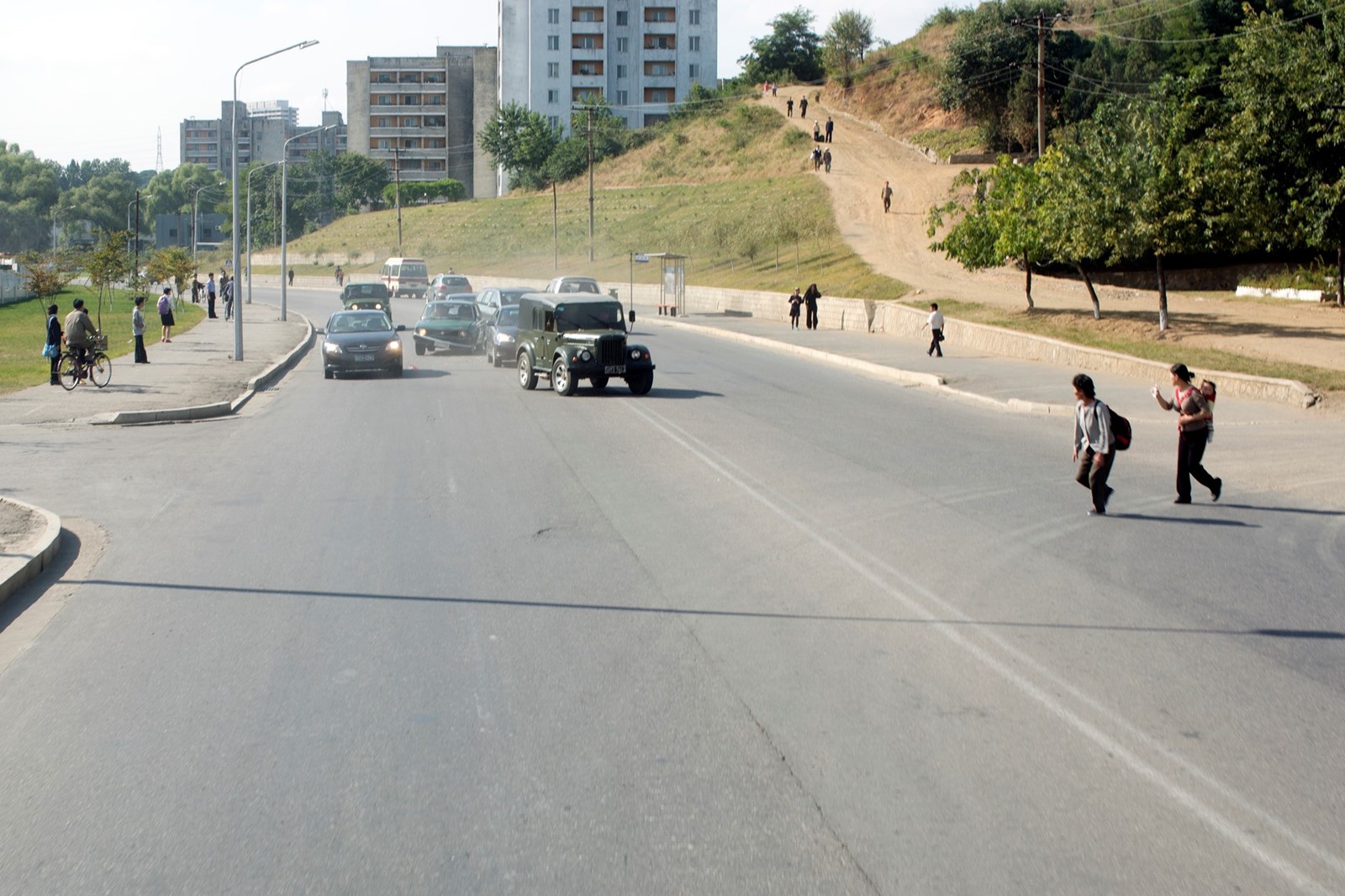
“This photograph documents a car crash. I was on a tour bus when this happened, and I instinctively took the photo. That image is the one frame I managed to snap before my English-speaking minder suddenly quipped, ‘oh, don’t take a photo of that! Please, please, please don’t take a photo of that – no car crashes happen here, these kinds of things don’t happen here.’”
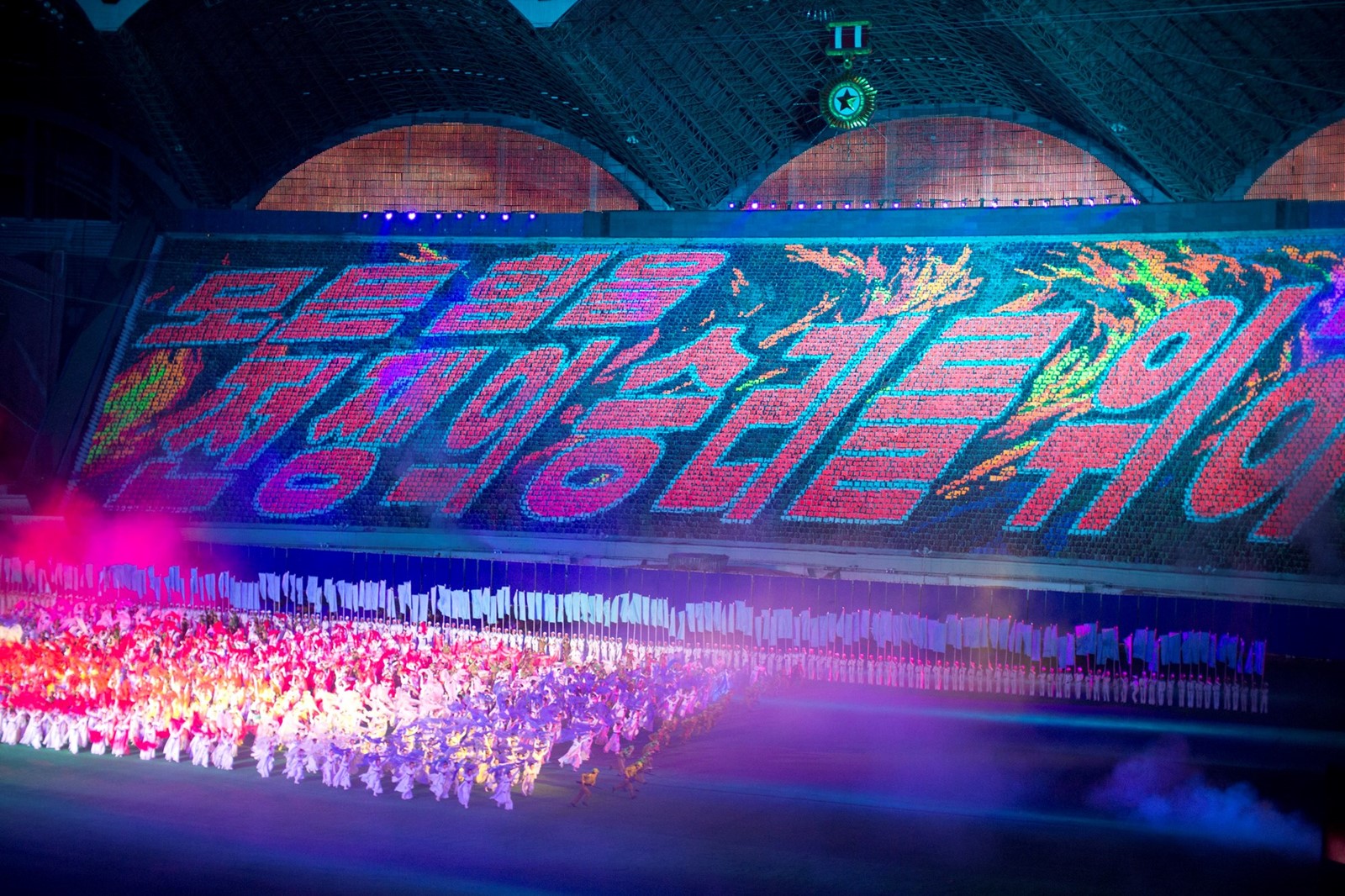
“This image is quite a good representative of the North Korean ideal – where it’s not about the individual, it’s about the whole.”
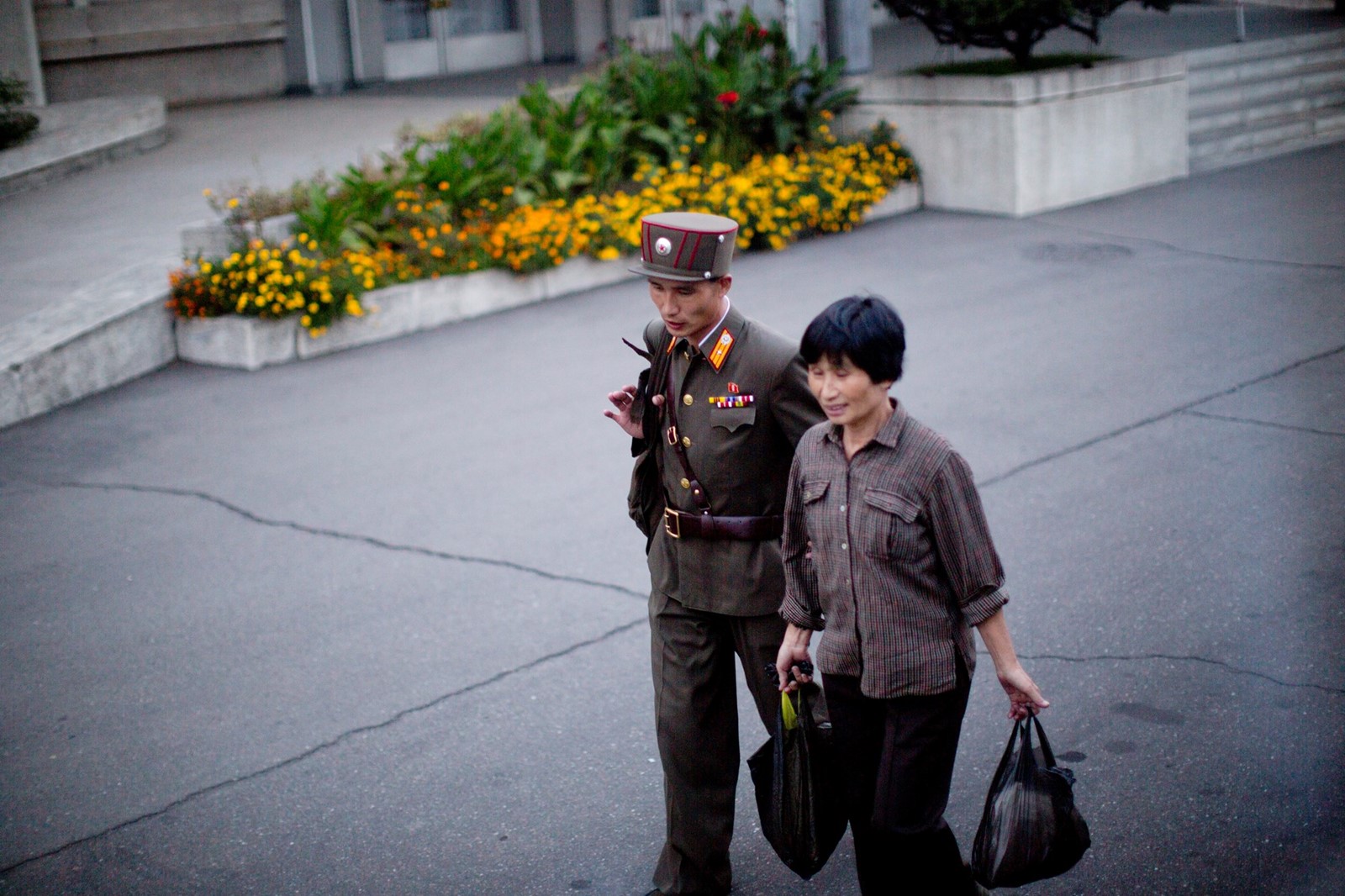
“I also like the more subtle photographs from the series. There’s one where there’s a woman and what looks like her son walking down the street. That’s just very normal, human interaction, which is important within the wider context.”
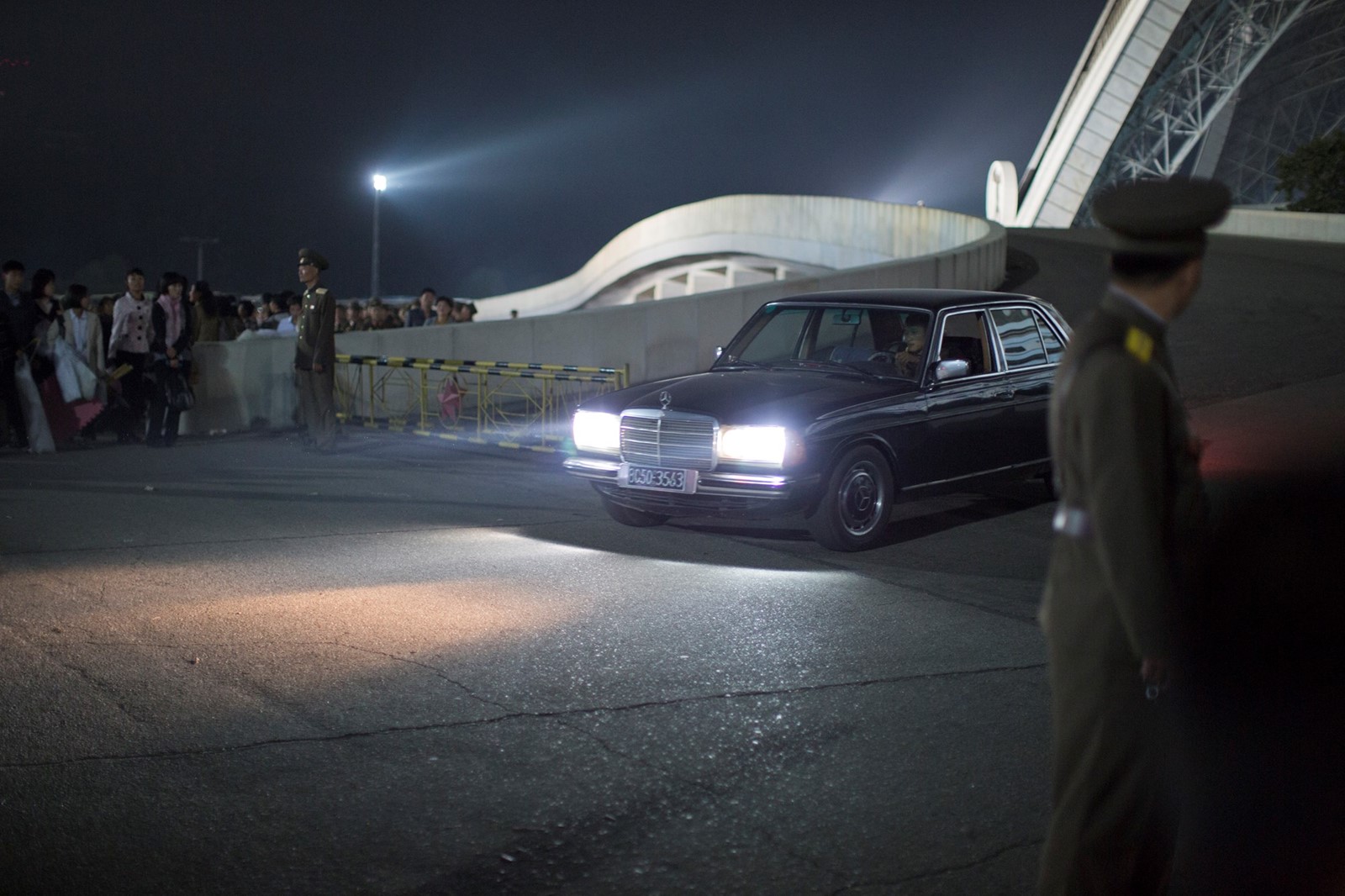
“I spend a lot of time in conflict zones, and what often tends to work in very dangerous situations with a militant or something, is simply smiling to people and making them feel at ease. I just smile and say hello and try and be as normal as possible. Again, it’s amazing how humans just react to that. Other people would disagree with me, but I’ve been at many checkpoints where it’s all been pretty hairy, and you just throw up a big smile and ask if they want a cigarette and everyone sort of calms down... for a little bit, anyway.”
